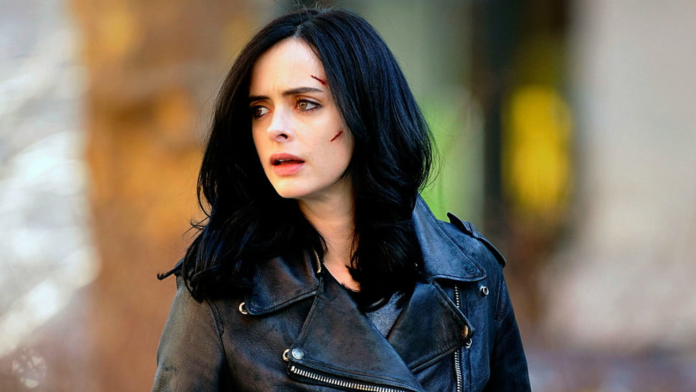Netflix has released the latest installment in the Marvel Universe. A new season of Jessica Jones was released on March 8. In case you missed the first season, a brief overview.
Jessica Jones, an unwilling, bitter, quick-witted woman with super strength starts a private investigation service. She’s part of the Defenders, a lesser known, less cohesive, super group — especially when compared to the Avengers. Season one revealed little backstory: just enough of a glimpse into how Jessica came to be, and to uncover some of the darkness inside her.
The second season starts off a little slow, and I was tempted to give up, but I persevered. The remainder of the season improves by leaps and bounds after the big twist. I give it four shots of whisky out of five.
This season explores the theme of redemption, something touched on briefly in the first season. The repercussions of the terrible actions committed follow the characters, causing them to question their morality. Each character has a moment where they wonder whether they truly are amenable; do their actions define who they truly are? Is there still time to change? Addiction, murder, rage, the desire to make a difference, each topic gives way to discussion.
With the rising of female heroes who are all beautiful, leggy, and strong, it is refreshing to see a hero who struggles with some of the real problems that many of us navigate: abuse, PTSD, family problems — albeit perhaps not on the same scale — and death. In this, I find Jones more relatable to myself: a woman struggling with her past, wanting to do good, and fighting with her demons.
While the show is entertaining, and the explosion-to-acting-ratio is decent, I found the season left me wondering why issues were brought up, only to be skirted around in the end. While Jones goes through quite the internal battle in the show, hers was really the only character that the viewer was able to see fully delve into a struggle. For example, there are large chunks of the show that focus on the characters of Malcolm and Trish. These are definite parts wherein they play an almost equal role in terms of screen time, and yet their character arcs are left woefully undeveloped. It seems an odd choice to give them such large roles, but not take the opportunity to develop them any further. In contrast to this, the P.I. and her internal issues create a tension in the second half of the season that far outweighs its slow beginnings.
The show ends on a rather dour note. Jessica, once again isolating herself from her family and friends, alone, except for her new boyfriend and his son. There’s a few directions the show could explore in the future, but unless the leather-clad, raven-haired, heavy-drinking Jones has a major personal breakthrough, I’m not sure the show will captivate audiences through any more of the same storyline.
Overall, the first season of the series was superior, and while the second season does its best to deliver a follow-up, it still falls woefully short of what it could have been.
It’s still better than Iron Fist though, so there’s that.


